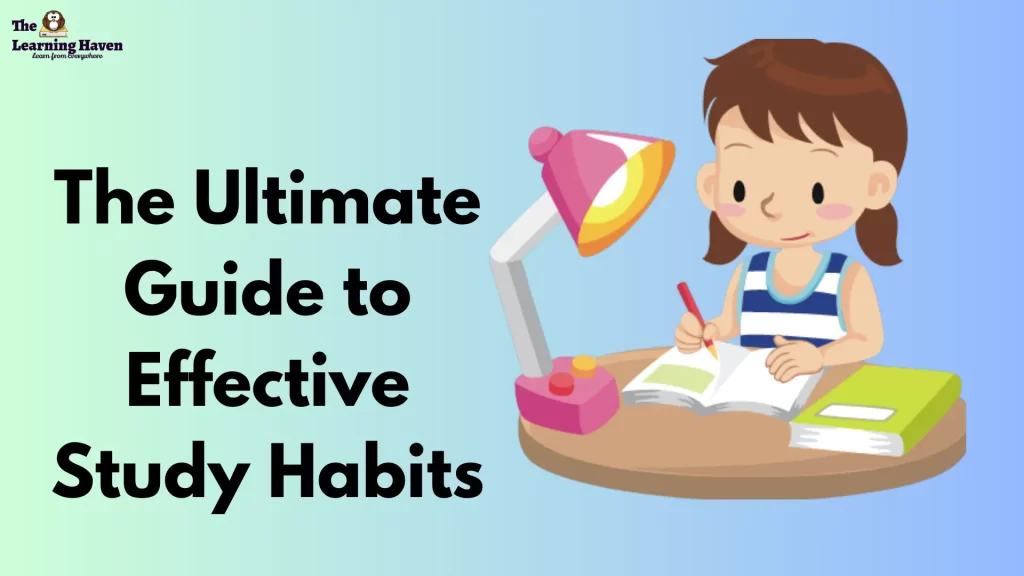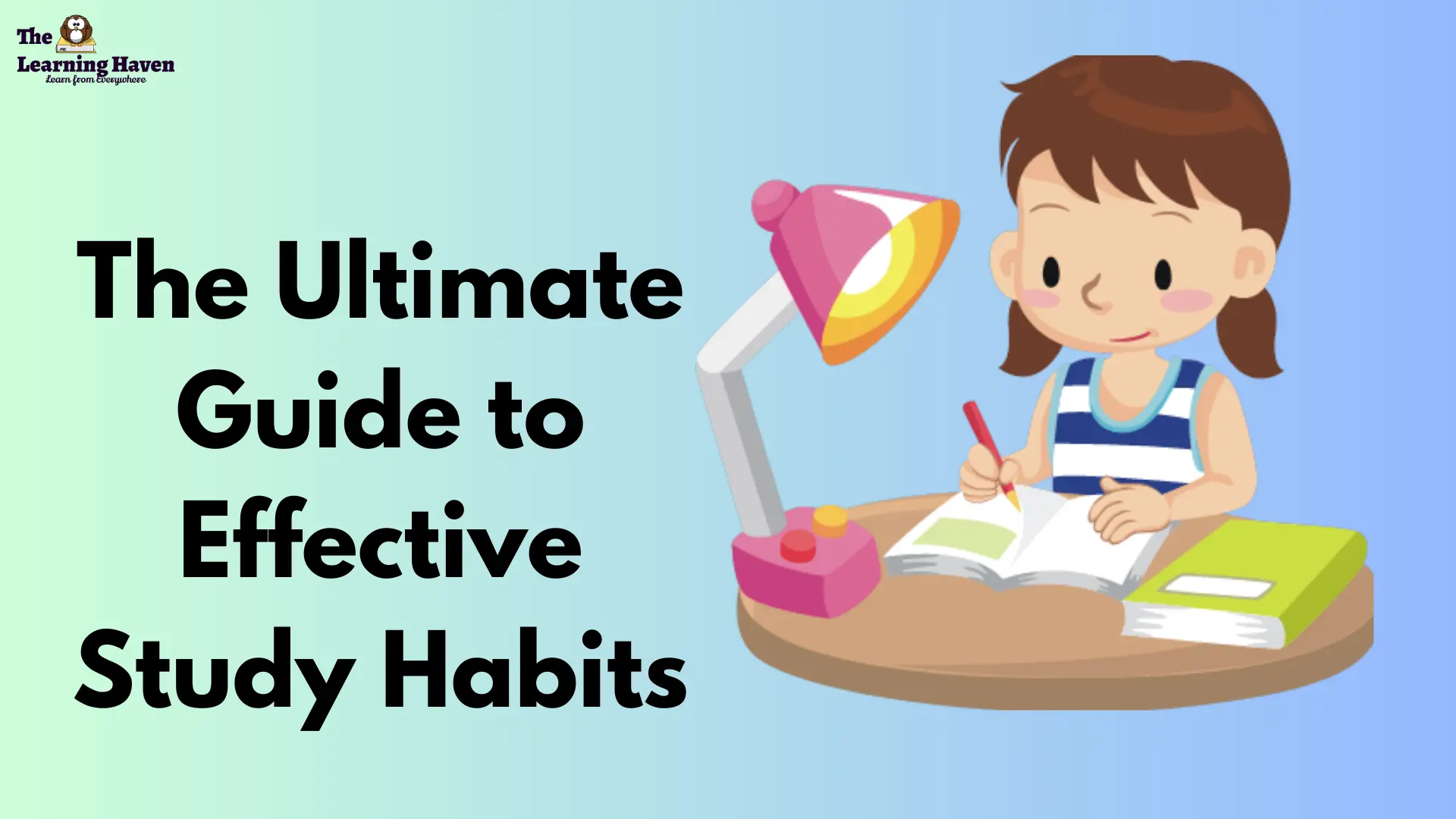The Ultimate Guide to Effective Study Habits
Effective study habits are essential for success in academics, but they’re not always innate skills. Just like any other skill, they require practice, dedication, and a strategic approach. Whether you’re a student preparing for exams or someone looking to enhance your learning abilities, mastering effective study habits can make a significant difference in your educational journey. In this guide, we’ll explore a range of proven study techniques to help you optimize your learning process and achieve your academic goals.
Understanding Your Learning Style:
Before diving into specific study techniques, it’s crucial to understand your unique learning style. Are you a visual learner who benefits from diagrams and charts? Perhaps you’re an auditory learner who retains information best through listening and discussion. Alternatively, you might be a kinesthetic learner who learns by doing and engaging in hands-on activities. Identifying your learning style will enable you to tailor your study methods to suit your individual preferences and maximize your learning potential.

Effective Study Habits Techniques:
- Create a Structured Study Schedule: Establish a consistent study routine that fits your schedule and allows for adequate breaks. Set aside specific blocks of time dedicated to studying each day, and stick to your schedule to cultivate discipline and focus.
- Set Clear Goals: Define specific, achievable goals for each study session. Whether it’s completing a set number of practice problems, reviewing a chapter of material, or memorizing key concepts, having clear objectives will help you stay motivated and track your progress.
- Active Learning: Engage with the material actively rather than passively. Instead of simply reading through notes or textbooks, try techniques such as summarizing key points in your own words, teaching the material to a study partner, or creating flashcards for review.
- Utilize Multiple Resources: Don’t rely solely on one textbook or source of information. Supplement your learning with additional resources such as online tutorials, educational videos, or scholarly articles to gain different perspectives and deepen your understanding of the subject matter.
- Practice Retrieval: Test your knowledge regularly by practicing retrieval techniques. This involves actively recalling information from memory without the aid of notes or textbooks. Use flashcards, practice quizzes, or verbal recitation to reinforce learning and improve retention.
- Effective Note-Taking: Develop a system for taking organized and concise notes during lectures or while reading. Focus on capturing key concepts, important definitions, and relevant examples rather than transcribing everything verbatim. Organize your notes using headings, bullet points, or mind maps to facilitate easier review later on.
- Use Mnemonics: Mnemonic devices are memory aids that help you recall information more easily by associating it with vivid imagery, acronyms, or rhymes. Create your own mnemonic devices to remember complex information or lists, making studying both fun and effective.
- Chunking: Break down large amounts of information into smaller, manageable chunks. Group related concepts together and focus on understanding one chunk at a time before moving on to the next. This approach prevents information overload and enhances comprehension.
- Regular Review: Incorporate regular review sessions into your study routine to reinforce learning and prevent forgetting. Schedule periodic review sessions where you revisit previously covered material to maintain retention over time.
- Healthy Lifestyle Habits: Lastly, don’t overlook the importance of maintaining a healthy lifestyle to support effective studying. Get an adequate amount of sleep, eat nutritious meals, stay hydrated, and incorporate regular exercise into your routine. A healthy body and mind are essential for optimal cognitive function and academic performance.
Mastering effective study habits is a journey that requires dedication, persistence, and a willingness to experiment with different techniques. By understanding your learning style, setting clear goals, and employing a variety of proven study strategies, you can enhance your learning experience and achieve academic success. Remember, effective studying is not just about the amount of time you spend, but also about the quality and efficiency of your study methods. With commitment and strategic planning, you can unlock your full learning potential and excel in your educational endeavors.
See More AI Learning in 2024
Visit Our another site https://bn.thelearninghaven.com


1 Comment